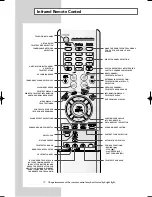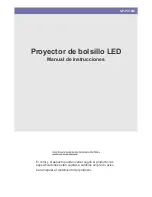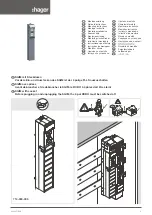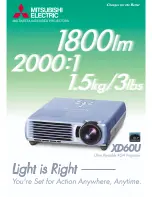
3D setup
The projector is capable of displaying stereoscopic 3D video sources, relying on additional hardware
(stereo emitters and glasses) to complete the display system.
Images generated from a stereo 3D video source consist of a series of images (frames) that alternate
quickly between two slightly different viewpoints, corresponding to our left and right eyes. When these
frames are displayed fast enough and viewed with special glasses synchronized to the left/right (L/R)
changes, the resulting image appears with the same depth and perspective sense in the real world.
3D requirements
Stereo 3D applications require a stereo 3D-capable source, special hardware and software setups, and
the projector’s 3D Settings menu option to control the projector’s processing, synchronization, and
displaying of the stereoscopic 3D source material.
Hardware requirements
Understand the hardware requirements for stereo 3D applications.
•
Christie M RGB Series projector with a Mirage license
•
3D stereo sync cable for direct-input 3D (and frame doubled)
•
A source, usually a computer with a 3D graphics card(s)
•
Emitter for controlling active shutter glasses
or
A qualified device that mounts in front of the lens of the projector to process the light from the
lens into a passive polarized light. Contact your Immersive dealer for more information.
Software and content requirements
Understand the software and content requirements for stereo 3D applications.
•
A Mirage license is required.
•
Any 3D computer software that supports 3D stereo on a supported computer(s) with
associated graphic cards (suggested cards include ATI or NVIDIA)
•
A video stream from a video source prepared to be sequential content (for direct-input 3D) or
two video streams from a video source that has been prepared to be supplied left eye and
right eye concurrently and frame locked (dual-input 3D)
Christie M RGB Series Installation and Setup Guide
71
020-103483-04 Rev. 1 (04-2022)
Copyright
©
2022 Christie Digital Systems USA, Inc. All rights reserved.






































